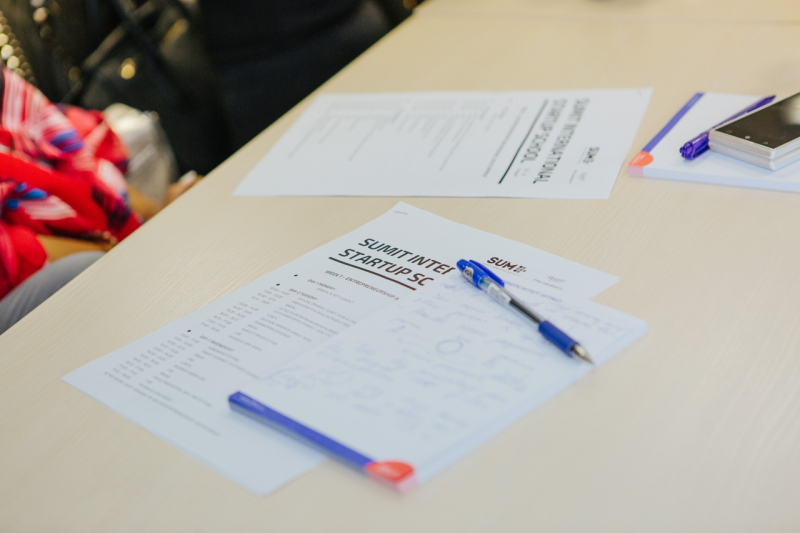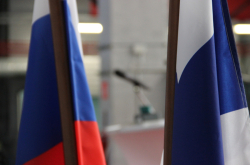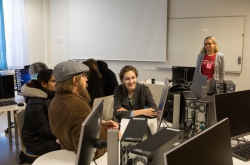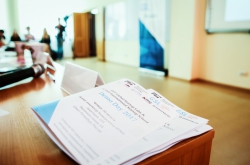This year, the school is held as part of the STARTUP CONNECT project, implemented in the framework of the South-East Finland – Russia Cross-Border Cooperation Program, funded by the European Union and the governments of Russia and Finland.
From the Russian side, SumIT is organized by ITMO University and the St. Petersburg Foundation for Small and Medium-Sized Enterprise Development; on the Finnish, by the Kotka-Hamina Regional Development Company Cursor Oy and the South-Eastern Finland University of Applied Sciences (XAMK).
“Russia and the EU have been running a cross-border partnership program for many years now. One of the most active areas of collaboration is between the South-East Finland on one side and St. Petersburg and the Leningrad Oblast on the other. As part of that collaboration, we’ve developed a strategic partnership with XAMK. In 2014-2020, we’ve had six winning project applications. One of these projects, practically the first we’ve succeeded with, is called STARTUP CONNECT. Our SumIT school also doubles as InnoCamp, an event that’s part of STARTUP CONNECT,” explains Igor Kuprienko, the head of ITMO's Center for Project Development and Fundraising and a chief organizing member of SumIT.
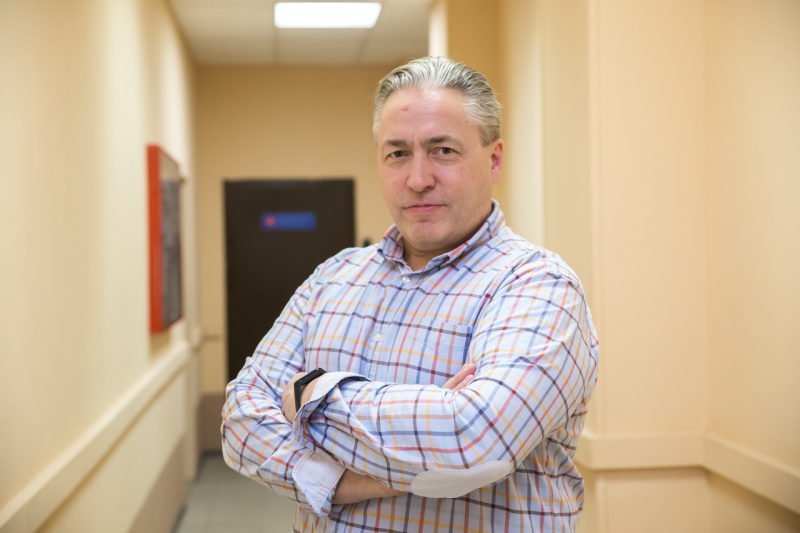
Over the course of two weeks, 40 participants from around the world – mostly Russia and Finland, but also France, the UK, China, India, Nepal, and nations of the CIS region – will develop their individual or team projects in the field of IT. The school’s intense program will include classes on handling competitors and target audiences, conducting market analysis, client-focused business, and preparing an MVP.
Upon completion of the school, each team is expected to produce a launch-ready product that they’ll present to potential investors and an international jury at the final Demo Day.
“It’s a very condensed, intensive course in project development,” explains Maksim Makarov, founder of the Russian-Finnish project Startup School for Innovation and a key speaker at SumIT. “The course is split into two main branches: one concerns the basics of startup development and business management – and the other consists of practical assignments that the participants work on as teams. Every day begins with an address by a world-class speaker and various experts in marketing, startup management, etc. In the end, students will gain a large pool of knowledge and instruments, as well as establish international connections that will help them build their startups today or anytime in the future.”
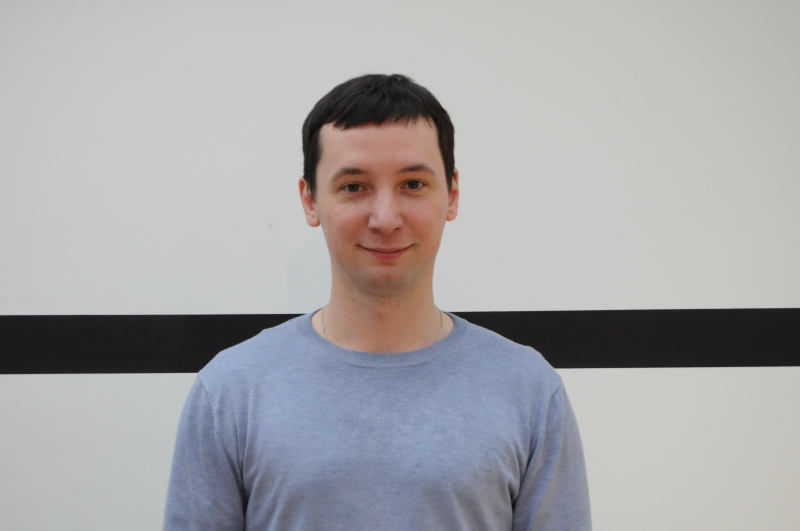
Among the school’s speakers are: Sabine Suorsa, a project manager at XAMK, who will deliver a lecture on dealing with one’s competitors; Igor Kuprienko, the head of ITMO University’s Center for Project Development and Fundraising, who will speak about sources for startup funding; Konstantin Khomchenko, a lead mentor at the ITMO Accelerator, who is in charge of lectures on marketing and product promotion; Erik Kristiansen, a Danish business coach who will help students understand the specifics of their products and develop MVPs; and Turkish mentors Meriç Bıçakcıoğlu and Taylan Demirkaya, who will speak about business models and project monetization.
As noted by the school’s organizing team, the number of its participants has grown greatly, and so has its geographical reach. This is also reflected in the wider range of fields that the projects may be developed in. On the first day, students presented projects such as: an app that aggregates content from various sources and social networks; a monitoring system for diabetics; an educational website for teaching staff; a travel route planning app; a social network for neighbors; a motivational program for staff; and an agricultural startup that aims to grow microgreens at a vertical urban farm.
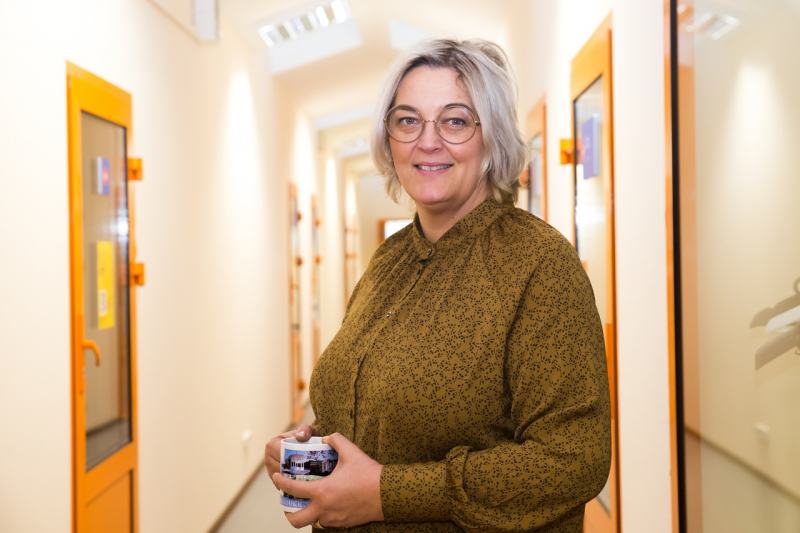
“The projects are very different, but they are all very interesting and innovative,” shares Sabine Suorsa. “Some of them are already quite far along on their path, while others are just starting out. One thing I’ve noticed is that not all of them can answer who their potential clients are. I am far from a tech specialist, and my specialization is in business, so I know how important it is to identify your target audience from the start. At the program, I’ll deliver lectures about dealing with competition, but I’m also a mentor and coach at InnoCamp, of which SumIT is a part of this year.”
The participants themselves note that they are most interested in three things: working with an international team, networking, and receiving the mentors’ help. Siddhant Mishra, a participant from India, says that he wants to launch his educational service for teachers in Russia specifically, which is what led him to grab this opportunity.
“Our project is a digital platform for teachers with a minimal amount of technical knowledge and soft skills. Russia and Finland both provide opportunities for the exponential growth of businesses, but right now we’re focused on Russia alone. So far, we’ve only got the idea, but we’re trying to produce an MVP as soon as possible. We were drawn to SumIT because the school provides you with the opportunity to work in an international team and with the support of mentors, which, we hope, will help make our idea a reality.” he says.
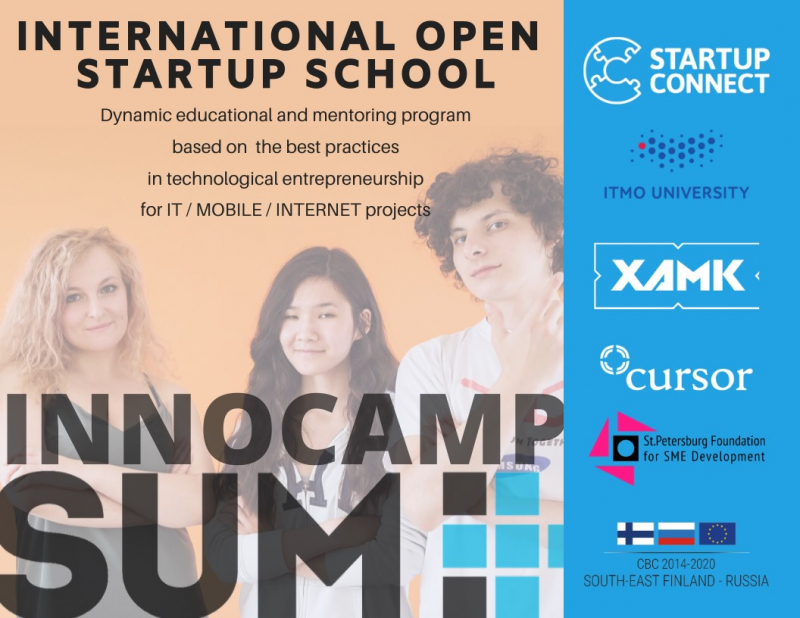
According to Igor Kuprienko, the project’s main premise is that due to their specifics, IT startups can immediately launch on the global market without needing to first develop within a specific country.
“Considering our geographic proximity, we could viably begin the development of businesses both on the Russian and the European markets,” he explains. “For instance, last week, the Finnish city of Kotka hosted the *ship festival for small and medium businesses. Among its participants were several residents of the ITMO Accelerator. We expect international experts and Finnish investors to participate in the school’s Demo Day. ITMO University and its partners are also working on the Twin Campus project, which will provide services to entrepreneurs and startups at two new university campuses: XAMK’s new campus in Kotka and ITMO University’s new campus Highpark. One of the services we want to provide is “soft landing,” which will help Russian companies ease into the Finnish market and vice-versa.”
